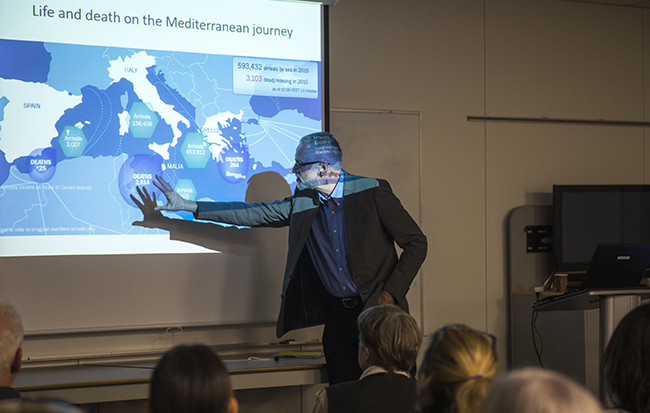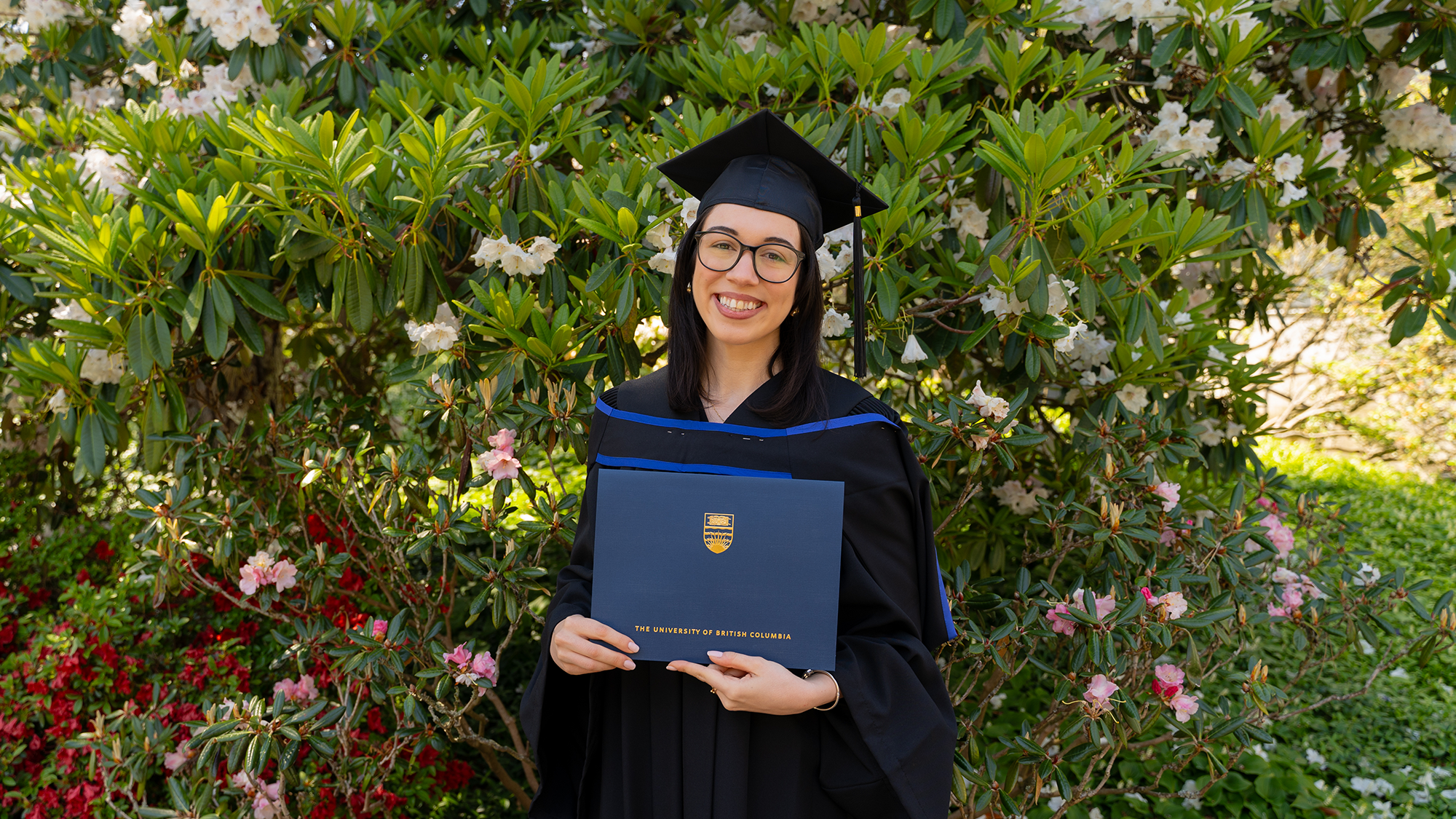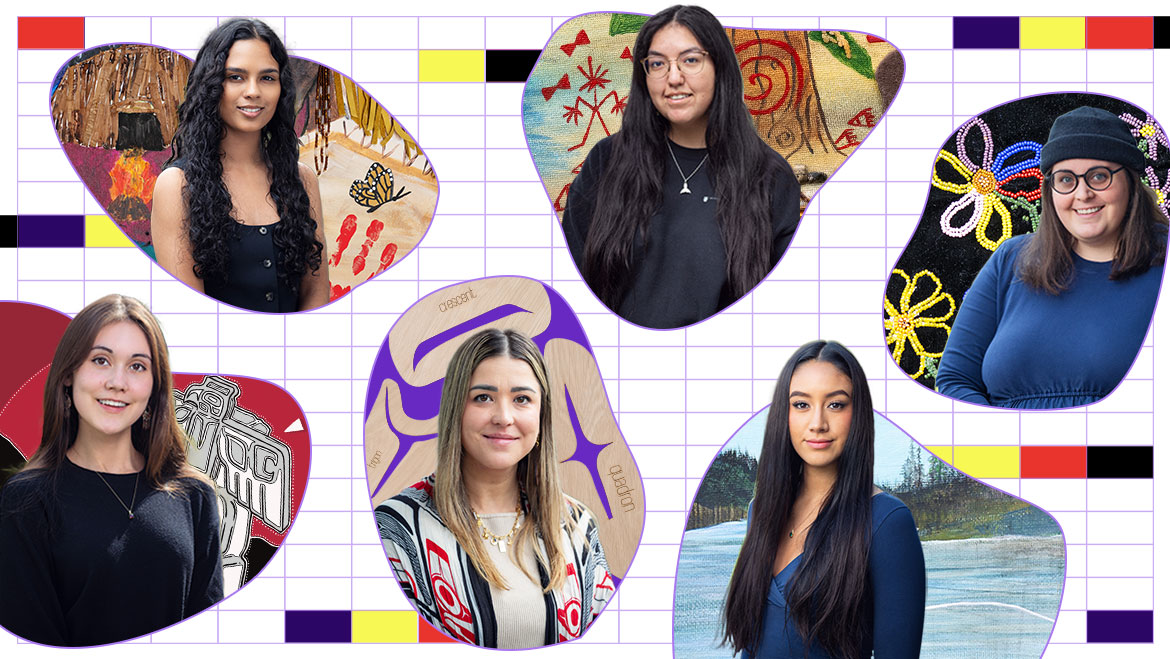Dr. Dan Hiebert is a Professor of Geography, Co-director of the Canadian Network for Research on Terrorism, Security and Society (TSAS), and a recent recipient of SSHRC Partnership Grants program funding for his work on TSAS. The Faculty of Arts spoke with Dr. Hiebert about the rise of ISIS, Canada’s role in the Syrian migrant crisis, and his plans for TSAS over the next seven years.
Can you explain why domestic radicalization appears to be on the increase?
First of all I have to play a little bit with the question. Is domestic radicalization on the rise? In TSAS, we have a Canadian Incident Database that looks at all instances of terrorist-related attacks in Canada since 1960. So there have been times when there have been really high levels of radicalization and terrorism, and other times when there have been relatively low ones. And I don’t think today stands out as the high point on that graph.
One of the most useful things we did as an organization was back on October 22, when there was an attack on Parliament Hill. That day we sent out a press release detailing all incidents involving military personnel that happened over the last 50 years in Ottawa. We wanted to provide that sense of a past, to help people realize that things are not as new and unusual in terms of Canadian politics as so much of the media was saying.
Is there anything missing from current conversations about the Paris attacks?
It is such a human tendency, after something so dramatic happens, to try to understand its implications immediately. But we can’t. We are insufficiently informed to be able to do that.
We don’t yet have a clear sense of the degree of organization; of just how much the local attackers were controlled by what we think is ISIS in Syria and Iraq. We don’t know whether the attackers were under surveillance. We don’t know how they got their weapons. There are just so many gaps.
So we’ll know if we’ve been talking about the right things when we get more information. And just as an example – one of the attackers had a Syrian passport. That passport belonged to a person who arrived in Greece from the Middle East. Was it really that person’s passport? Or was that a tactic used by the attackers to sow misinformation in what they were doing? A lot of conversation has happened about the relationship between the Paris attacks and Syrian refugees coming to Europe. Once we know more about the attackers, we’ll know whether that was an appropriate conversation to have had or not.
How effective do you think cyber attacks – like the one proposed by Anonymous – will be in countering ISIS?
I’m rather pleased that Anonymous has taken on this target. But in terms of making material damage to ISIS, I don’t believe it’s going to have much of an impact. ISIS is a very complicated organization; it’s large, and it has access to funding through the sale of oil. It’s not going to be brought to its knees by a cyber attack, in my opinion.
How can fearmongering be recognized and prevented?
There is a global concern about people who are motivated to terrorism through a very particular interpretation of Islam, and many people who lack education or lack an understanding of things read that to be the entire Islamic community rather than a tiny fraction of that community. Therefore, attacks like this often lead to stigmatization of whole communities rather than individuals.
How do we mitigate against it? We need to understand that as a society, we are fighting two fronts at the same time. One front is the issue of radicalisation and extremist violence. We are building all kinds of policies and practices to deal with that. But the other front we have to deal with is Islamophobia. And if you don’t resolve the second, you’re not going to resolve the first. If you look at the remarkably sophisticated ISIS propaganda machine, one of the things it focuses on is Islamophobia in Western societies as a mechanism of recruiting people for violent causes. So these things are intimately connected and we have to address them both at the same time.
How can Canadian immigration policies better assist refugees of the current migrant crisis?
These people are going to be granted permanent residence, so we need to make them feel like permanent members of Canadian society. Achieving that, first of all, relates to housing, then employment, which of course necessitates language. You can’t just walk into any shop in Canada only knowing Arabic and expect to get a job.
So there’s a huge amount of preparation that has to be done to help these Syrians adjust to Canadian society, starting with language, housing, and getting their kids into school. Fortunately, we have a vast and complex array of non-profit organizations that specialize in helping newcomers integrate. These organizations are now in constant conversation with the Canadian government to anticipate the arrivals that are going to be happening within the next couple of weeks, and are trying to do everything to set a landscape of welcome and integration for the Syrians coming here.
How have your priorities for TSAS changed in light of the recent attacks in Paris?
I wouldn’t say that we’re changing in light of those recent attacks because those attacks are part of a larger pattern. We started TSAS in 2012, and back then the term that was used all the time was “Al-Qaeda-inspired movements”. That’s almost gone away, just in three years. Now ISIS is at the centre of everybody’s concerns. I don’t think very many people understand just how elaborate and sophisticated that is, for good reason; most people avoid going to websites that show horrible atrocities like people being beheaded. But ISIS has released hundreds of high quality videos onto the world. It’s a very potent recruitment machine. Targeting Western-based youth for the ISIS cause is something that Al-Qaeda never managed in the past.
So we’ve seen a growing sense of urgency over the last three years, and the Paris attacks corroborate what we’ve already known. So I don’t think it’s going to change our tactics. We are an organization with a great deal of capacity and flexibility, and I think we will be able to work with the new government quite well as this new landscape gets more defined.
How do you hope TSAS will influence the Canadian response to international security issues?
The way I like to think about this is that we have to make Canadian society safe, but for all members of Canadian society, not just the so-called mainstream. We can’t forget about the human rights of minorities. And along the lines of what I was speaking about before, we have two challenges in front of us rather than just one.
I spent all day yesterday with the RCMP in Ottawa working on their design for the Terrorism Prevention Program. TSAS was represented by about 10 people around that table, and we had a very frank and open exchange. So the preliminary conversations we’re having with people in the new political world of Canada are very promising.
What do you hope TSAS will achieve over the next seven years?
We have several aspirations. The first is we hope to improve the culture of conversation between academic researchers and people in the policy sector of the Canadian government. That involves people in government being more aware of what academics can contribute, and people in academia being more aware of how they can contribute. Many academics like to criticize policies, but they don’t pay attention to how policies are created. We’re trying to foster that kind of knowledge on both sides of the equation.
The second is we want to create more evidence. Our goal is to have Canadian policy informed by real social science, rather than by anecdote or stereotype. So we want to engage in a ton of research to help fuel our capacity to put important findings in front of the policy process.
The third objective is this triangular relationship that we want to achieve between policy, scholarly research, and community concerns. We feel very strongly in that, even in the way we named our organization: it’s Terrorism, Security and Society. So we want to work almost as much with social organizations as we are with the policy process in government.
The fourth is giving more shape and structure to the nature of security studies in Canada, and cultivating graduate students’ interest in the policy process so that they could achieve careers in that direction. If more government officials understand how to build policy on the basis of high-quality research, this is going to help Canada, and help the larger relationships between scholarly activity and the policy process.
I’ll mention one last one. We’re also participating quite a lot in public discourse. If you just count the members of the TSAS Executive Committee, we have about 200-300 media engagements per year. That’s all part of an effort to raise awareness so we can have better informed public discussion around these issues.
So we have very big ambitions. We know we’re not going to accomplish everything we want, but those are the kind of goals that we set ourselves as an organization.



